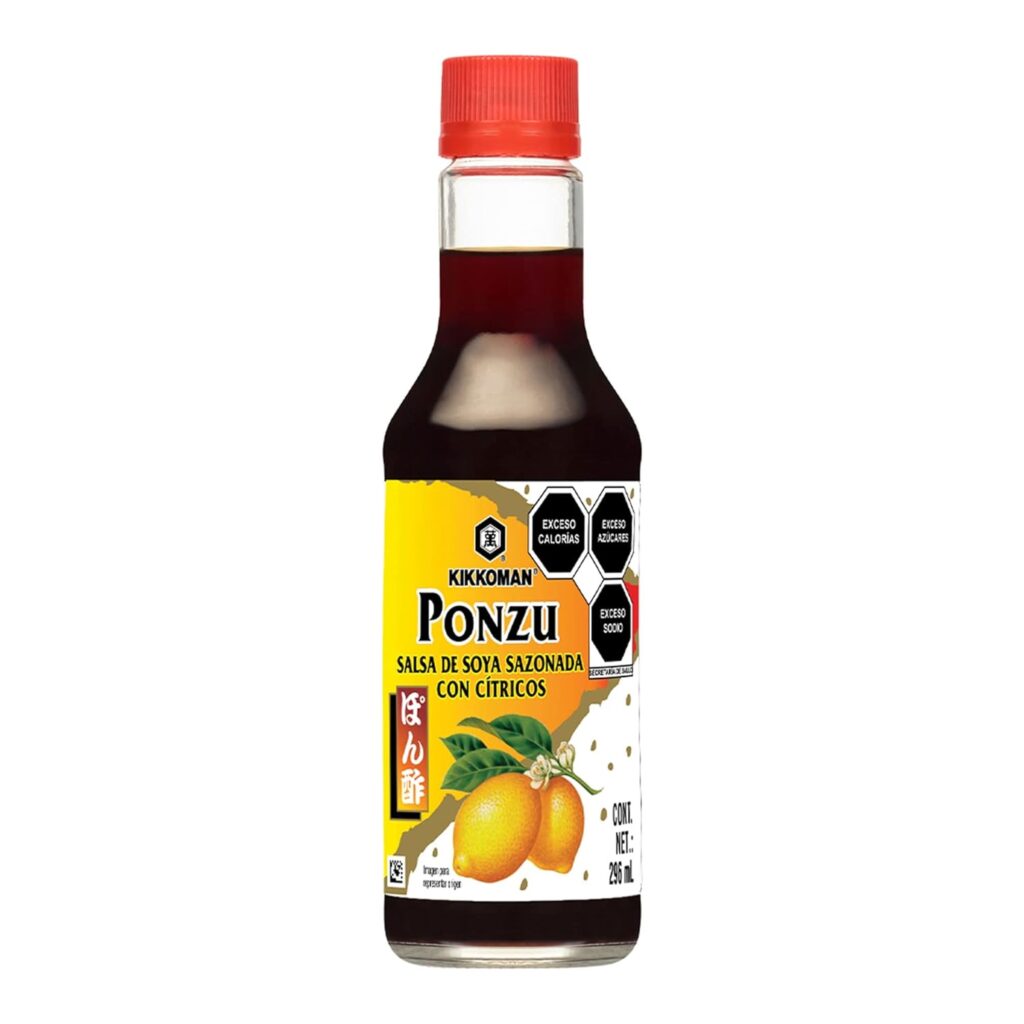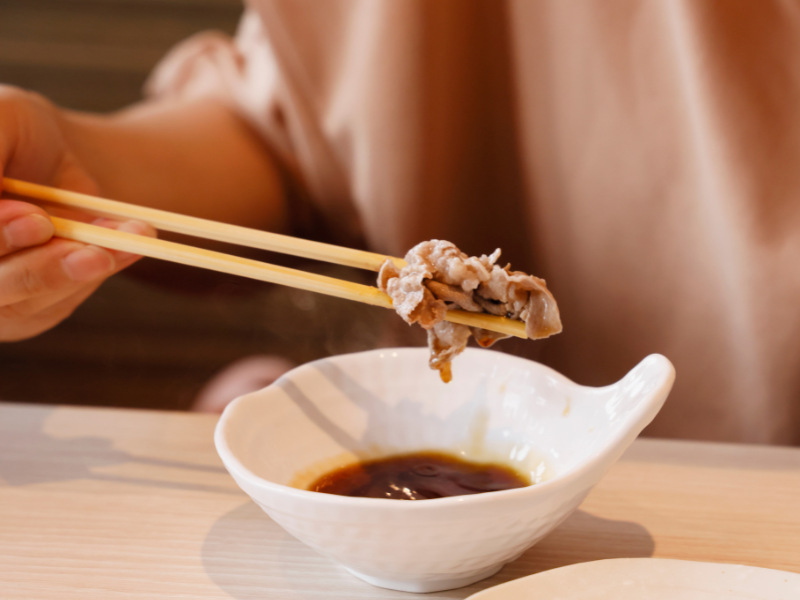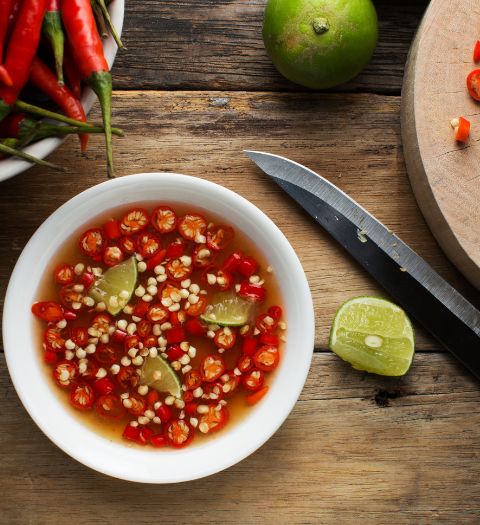Ponzu sauce, often called the “hidden treasure” of Japanese cuisine, is a versatile and tangy condiment known for its unique flavor profile. With a perfect balance of savory, sweet, and citrusy notes, it adds a delightful complexity to a wide range of dishes. Whether you’re a seasoned chef or a novice in the kitchen, understanding what ponzu sauce is and how to use it can open the door to an array of culinary possibilities. In this blog post, we’ll explore the world of ponzu sauce, delving into its origins, characteristics, and the diverse ways it can elevate your culinary creations.
What is Ponzu Sauce

Ponzu sauce is a traditional Japanese condiment known for its harmonious combination of umami, sweetness, and acidity. The word “ponzu” itself is derived from the Dutch word “pons,” which means punch or seasoning, reflecting its origins in Japanese-Dutch culinary history. The primary components of ponzu sauce include soy sauce, citrus juice (often yuzu or a combination of yuzu and other citrus fruits), rice vinegar, bonito flakes, and seaweed (typically kombu). The sauce is created by simmering and then blending these ingredients, resulting in a tangy and flavorful liquid that offers a unique culinary experience.
The production of ponzu sauce involves several key steps:
- Simmering: The combination of soy sauce, citrus juice, rice vinegar, bonito flakes, and kombu is simmered to infuse the flavors and extract the essence of the ingredients.
- Straining and Blending: After simmering, the mixture is strained to remove solid particles and create a smooth, liquid consistency. The sauce is then blended to ensure a harmonious integration of flavors.
- Aging: Ponzu sauce is often aged, which allows its flavors to deepen and mellow, creating a more nuanced and balanced profile.
What is Ponzu Sauce Used For
Ponzu sauce is an incredibly versatile condiment that can be used in a variety of culinary applications. Here are some popular uses of ponzu sauce:
- Dipping Sauce: Ponzu sauce is frequently used as a dipping sauce for a variety of dishes, including sushi, sashimi, gyoza, and tempura. Its bright and tangy flavors complement the freshness of seafood and the crispy textures of fried foods.
- Marinade: Ponzu sauce makes an excellent marinade for meats, poultry, and seafood. It imparts a zesty and savory flavor while also tenderizing the protein. Marinating your choice of protein in ponzu sauce for a few hours can infuse it with delicious notes.
- Salad Dressing: Ponzu sauce can be used as a salad dressing, either on its own or in combination with other ingredients like sesame oil, ginger, and honey. It adds a unique and refreshing twist to your salads, enhancing the overall taste.
- Stir-Fries: Incorporating ponzu sauce into stir-fries provides a tangy and savory base for vegetables, proteins, and noodles or rice. It offers a dynamic flavor profile that elevates stir-fried dishes.
- Noodle Dishes: Ponzu sauce can be used to season and brighten up noodle dishes such as udon, soba, and yakisoba. Its acidity and umami enhance the flavors of these dishes.
- Grilled and Broiled Dishes: Brushing ponzu sauce onto grilled or broiled meats, fish, and vegetables during or after cooking can create a delectable glaze and a burst of citrusy freshness.
- Ceviche: Ponzu sauce is a popular choice for making ceviche, where it serves as both a marinade and a dressing for the raw seafood, combining with the natural juices to create a balanced and flavorful dish.
- Tofu and Vegan Dishes: Ponzu sauce is a wonderful companion for tofu, adding layers of taste to plant-based and vegan dishes. It brings brightness and depth to these creations.
Substitutes for Ponzu Sauce
While ponzu sauce is a unique and irreplaceable condiment, you may find yourself in a situation where you need a suitable substitute due to dietary restrictions, allergies, or simply the unavailability of ponzu sauce. Here are some alternatives that can provide a similar umami-rich depth of flavor:
- Soy Sauce and Citrus: Mix soy sauce with fresh citrus juice, such as lemon or lime, to create a substitute with a similar balance of salty and tangy flavors. Adjust the proportions to achieve your desired taste.
- Soy Sauce and Rice Vinegar: Combining soy sauce with rice vinegar can provide a balance of saltiness and acidity that resembles ponzu sauce. Add a touch of sweetness, like a pinch of sugar or honey, to achieve a closer match.
- Soy Sauce and Yuzu Juice: Yuzu juice, a key component in traditional ponzu sauce, can be combined with soy sauce to create a close alternative. Yuzu juice has a unique citrusy flavor that contributes to the distinctive profile of ponzu sauce.
- Soy Sauce and Rice Vinegar with Orange Zest: Mix soy sauce, rice vinegar, and freshly grated orange zest to replicate the citrusy brightness of ponzu sauce. The orange zest adds a unique twist to the substitute.
- Lemon Juice or Lime Juice with a Touch of Sugar: If you’re looking for a quick and straightforward substitute, fresh lemon juice or lime juice with a bit of sugar can mimic the tangy and sweet aspects of ponzu sauce. Adjust the sweetness to your liking.
- Soy Sauce and Mirin: Mixing soy sauce with mirin, a sweet rice wine, can provide a blend of salty and sweet flavors similar to ponzu sauce. Adjust the sweetness level by adding more or less mirin.
- Soy Sauce and Worcestershire Sauce: Worcestershire sauce offers a unique blend of sweet, tangy, and savory flavors that can be used as a substitute for ponzu sauce. It has its own distinctive profile that can enhance your dishes.
When using a substitute for ponzu sauce, consider that the flavor may differ slightly from traditional ponzu, so it’s essential to adjust and taste as you go. The choice of substitute will depend on your dietary preferences and the specific requirements of your recipe. While nothing truly replicates the distinct taste of ponzu sauce, these alternatives can still bring a tangy and umami dimension to your dishes.
Conclusion
Ponzu sauce is a hidden gem in the world of condiments, offering a harmonious blend of flavors that can enhance your culinary creations in countless ways. Its tangy and zesty nature makes it a versatile companion to a wide array of dishes, from seafood to salads, and beyond. Understanding what ponzu sauce is and how to use it allows you to experiment with different flavor profiles and elevate your cooking to new heights. So, the next time you’re in the kitchen, don’t hesitate to reach for a bottle of ponzu sauce to add a touch of citrusy brightness and umami depth to your dishes.





